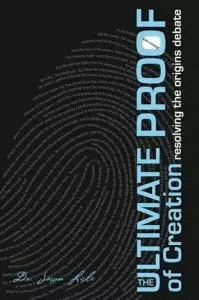As Christians, we should be seeking to glorify God in our lives, edifying other believers, sharing the gospel message, and so on. We must take a consistent biblical approach when defending the Bible. The most popular verse among apologists is 1 Peter 3:15, which tells us to always be ready to make a defense (ἀπολογία, apologia). That is the middle part. Apologists often go on to the next part about gentleness and respect (though some folks need reminding that we are doing this to defend the faith, not win arguments to build up our egos). Some tend to neglect the beginning: sanctify Christ as Lord in your hearts. How do we do that?
We must recognize that Jesus is first in our lives. Love God with your heart, soul, mind, and strength (Mark 12:30). Catch that? We are to love God with our minds as well as heart, soul, and strength. Apologists point out that we do not have to put our minds out to pasture in order to be Christians. Indeed, some of the greatest thinkers and scientists throughout history have been Bible believers, and many have been biblical creationists. Wisdom begins with God (Prov. 1:7); all the treasures of wisdom and knowledge are in Christ (Col. 2:3), not with man’s philosophies (1 Cor. 1:20). Proponents of evidential or classical apologetics (the differences are negligible for our purpose here) wish to present a wagon train-load of evidence with the hope that the unbeliever will come to repentance.
Remember, we are not the ones doing the saving. We have to be faithful and present the truth, but the Holy Spirit does the conviction and draws people to salvation. Not only does that help keep apologists humble and give God the glory, but is also a comfort. How? We may feel like we failed if we did not present a flawless argument, but must rely on the power of God (1 Cor. 2:4). If you’ve read or heard testimonies of people coming to Christ, you probably saw how some walked away (sometimes in anger), but the seeds were planted and the person came to salvation later.
Ever heard of Antony Flew? He was a famous atheist who became a theist because of the evidence — but apparently he died without Christ. There are accounts of people presenting the evidence for the bodily Resurrection of Jesus to atheists who admitted that he must have come back to life, but they rejected that he is the Savior. There were some serious problems in what happened with these unbelievers.
I’m sure you’ve heard of presuppositional apologetics. It has several names, including transcendental, covenental, and so forth. Although it is popular among the Reformed community, you don’t have to be Reformed to use it. A disclaimer is in order: I refuse the labels of Reformed, Calvinist, Arminian, or others, preferring to self-identify as Bible-believing Christian who seeks to glorify God. (I’ll allow that some Reformed people have acted like, “That’s our methodology, and you can’t use it!”, but more mature presuppositional apologists don’t ask for your bona fides, and you can shake on it and part friendly.) I’ve been learning presuppositional apologetics for years, and still seek to develop it. Like growing in God’s Word, this method takes development, but the basics can be easily grasped. Most basic: believe your Bible! That’s helpful, because there are different schools of thought on this apologetic, and that can be a bit disconcerting for the newcomer. We won’t be getting into that, however. Just thought you should know.
Presuppositional apologetics has been greatly misunderstood and misrepresented by both atheists and Christians—
“But Pastor Bigname that so many people admire says it’s nonsense!”
So? That’s an appeal to authority fallacy, and it doesn’t mean that a pastor, apologist, or someone else that people like is correct. I can name old earth and theistic evolutionists that people respect, but they are talking from their assumptions, not from biblical knowledge. God’s Word should be our final authority, and we should examine it. Closely.
Presuppositional apologists are not simplistic, relying on fideism. Those who use evidential apologetics use presuppositions, and presuppositional apologists use evidence. We are also accused of circular reasoning because we use the Bible — God’s revelation — as our starting point. Atheists and evolutionists are hardcore presuppositionalists themselves! They start with materialism. In a way, the charge of circular reasoning is correct, because everyone has an ultimate starting point. If we look to validate the Bible with something else, that been given the superior position above God’s Word.
Mind if I shorten the word to presup? Much obliged.
A popular saying in presup circles is that if unbelievers want to be “neutral” in a discussion or debate, keep in mind two things: they’re not, and you shouldn’t be. Their worldview is based on materialism, and they reject spiritual things. The unbeliever is blinded by and under the control of their father down below, and cannot understand spiritual things (John 8:44, 1 Cor. 2:14, 2 Cor. 4:4, Rom. 5:10). More than that, God’s Word tells us that they know he exists and suppress that knowledge in unrighteousness (Rom. 1:18-22). If you agree to “leave the Bible out of it” (neutral ground), congratulations, pilgrim. You just lost the discussion or debate! A good soldier does not throw down his shield and sword before battle (Eph. 6:10-17). That’s no way to pull down strongholds (2 Cor. 10:4).
We cannot dishonor God by putting him on trial so that unbelievers can use their “wisdom” to decide that God exists and is worthy of worship. Not only is this dishonoring to God, it is in defiance of his Word. The Bible tells us that they already know he exists. God is our Creator and Redeemer, and is already worthy of worship. Early on, I made this same mistake by attempting to do an evidence-only approach in my weblogs, hoping that atheists and evolutionists would realize that there is evidence for God, recent special creation, and the Genesis Flood. The unregenerate man finds a passel of rescuing devices, and it becomes a contest — which may be “won” by the best presenter, not by facts. You give evidence, he finds something from an atheistic propaganda clearing house to respond, you respond with something else, and it continues. Worse, the debater “left the Bible out of it”. May as well join the old earthers, theistic evolutionists, agnostics, and others in the Intelligent Design movement. Avoiding God and expecting wisdom from unbelievers is not apologetics.
I mentioned pulling down strongholds. Presup circumvents brambles on the trail and gets to the heart of the matter: worldviews. It would make this article overly long to develop these subjects, but I have to mention that we can give an internal critique of the unbeliever’s worldview. Atheism and evolution actually make science impossible, and materialism also negates logic itself. Logic is not material. You can’t fall and say, “Which of you galoots left the Law of Identity by the bunkhouse door? I like to of broke my neck!” (I strongly recommend learning to spot logical fallacies. Not only for self-defense, but so we can avoid them and honor God by making as few of those errors as possible. It’s not that difficult, either.) We can show that atheism and evolutionism are irrational, lacking the conditions of human experience which are only found in the biblical worldview. This is where the gentleness and respect can be applied from 1 Peter 3:15, because we are bringing down the walls of their erroneous, rebellious worldviews. In addition, we can look at how we know what we know: epistemology. Scary word for some, but it is very useful in apologetics discussions. These are important not only in dealing with atheism and evolutionism, but also postmodernism, relativism, and nihilism.
There are some presup apologists that are a bit heavy-handed, and shun giving evidence. That is very unfortunate, and they may be able to remove a stumbling block simply by answering a question. It’s the interrogation by unbelievers, the “prove to me that God exists”, that is a problem. (By the way, when the person on “neutral ground” wants material evidence for God’s existence, he or she is committing the category mistake, because God is a spirit. What color litmus paper to you use to test for God?) But as I said before, we do use evidence.
So, how do we provide evidence in the proper way? To use a phrase I learned some time ago, we put it in a presuppositional framework.
Ever heard of David Rives? In this short astronomy video, he includes God with science. I have no idea if he considers himself a presuppositional apologist, but I reckon that he qualifies as using the presuppositional framework. Look at articles from the other major creation science organizations. They are also presup, and usually include Christ-honoring material with the science, such as this one from CMI.
Presup is biblical. In Acts 17:16-32, we see that Paul was presenting Jesus to the evolutionary pagan philosopher intellectuals in Athens. He presupposed the truth of God’s Word, how they knew the Creator exists. In verse 31, he gave evidence: Jesus rose from the dead. Also, when you read the Gospels, look for Jesus asking, “Have you not read…?” He was using presup there. Sometimes, he refused to give evidence, such as when people demanded a sign. Instead, he sent them to Scripture.
What I am doing is appealing to all y’all to put Scripture first. We need to honor God in our lives, ministries, and apologetics methods. I use a presuppositional framework like others mentioned before, and I implore you to avoid “neutral ground” or “leaving the Bible out of it”, because those are dishonoring to God. Evidence is important. Very much so. But it must be presented in a proper way. I have a couple of articles that elaborate on some of these points, which link to some helpful resources. If you’re interested, click on “Evidential or Presuppositional Apologetics?” and the one on epistemology, “How Do You Know It Is True?” I was started on this by Dr. Jason Lisle, and highly recommend the book The Ultimate Proof of Creation. You can find videos of the same title as well.
 The Ultimate Proof of Creation | Book | Dr. Jason Lisle
The Ultimate Proof of Creation | Book | Dr. Jason Lisle
It’s a bold title: The Ultimate Proof of Creation. But is there such a thing? There are many books that contain seemingly powerful arguments for biblical creation. But is there an ultimate proof of creation?
There is an argument for creation that is powerful, conclusive, and has no true rebuttal. As such, it is an irrefutable argument-an “ultimate proof” of the Christian worldview biblical creation. Master the method outlined in the following chapters, and you will be able to defend Christianity against all opposition.







